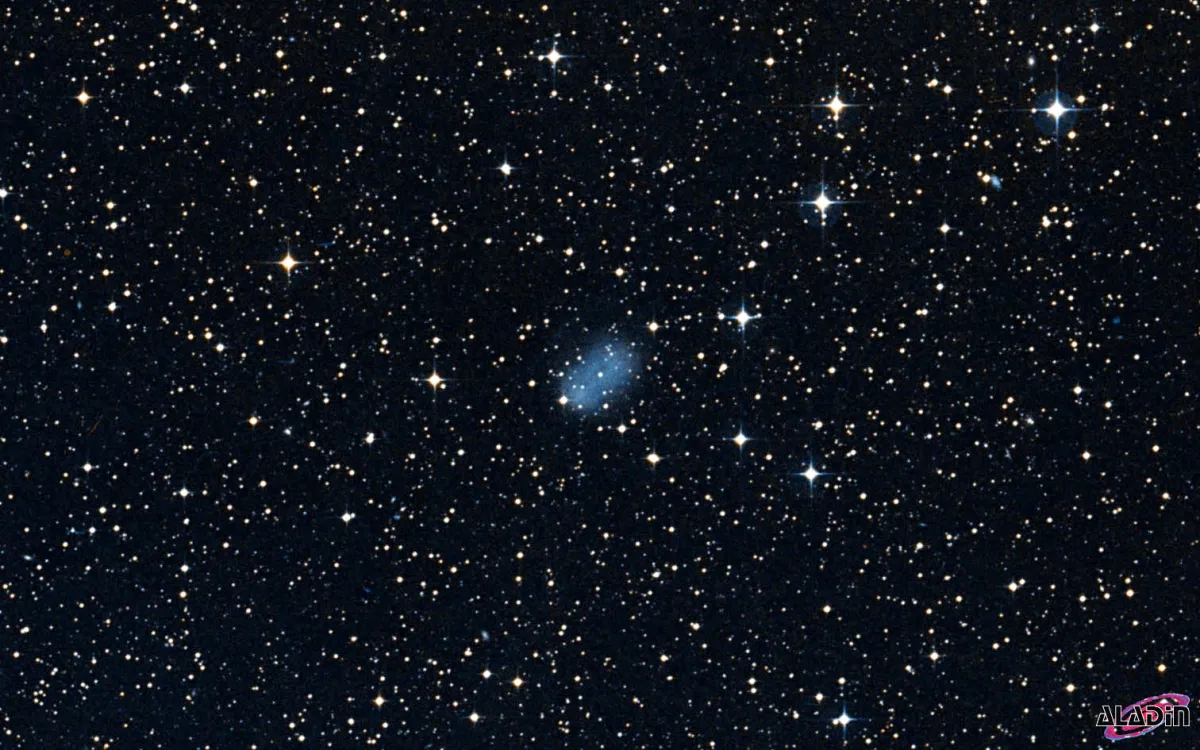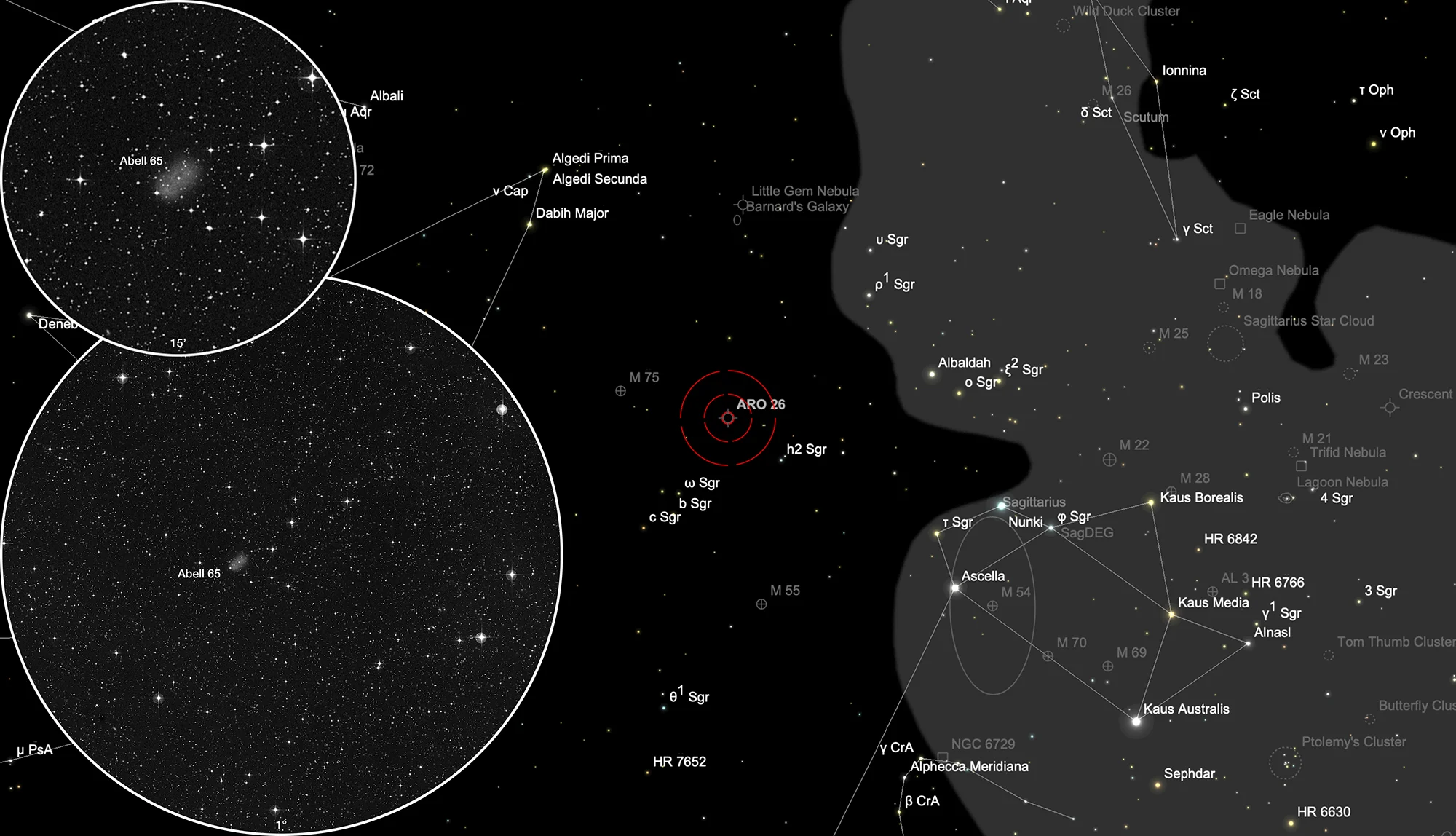Planetary Nebula Abell 65

History
While searching for H-II regions on the photo plates of the «Palomar Observatory Sky Survey» made with the 48 inch Schmidt telescope, the American astronomer Stewart Sharpless found this nebula and listed it as Sh 2-52 with the remark «may be a planetary». He published his findings in 1959 in a catalog with a total of 313 nebulae. [310]
In 1964 the American astronomer George Ogden Abell identified Abell 65 to be a planetary nebula and published it in 1966. [332]
Physical Properties
Abell 65 is a double-shelled planetary nebula with a binary central star and a peanut-shaped bipolar structure, measuring 134 by 74 arcsecs. A best fitting model showed that the outer shell has a kinematical age of (15000 ± 5000) y/kpc and a symmetry axe at inclinations of (55 ± 10)° to the line of sight. The kinematical age of the inner shell is (8000 ± 3000) y/kpc and the symmetry axe is at (68 ± 10)°. Deep O-III imaging show filamentary structures to the north-east and south-west, suggesting a polar outflow of the nebula. The binary central star has an orbital period of circa one day. The distance of the planetary nebula to the Earth is about 1.7 kpc. [595]
Visual magnitudes through different filters: B 15.93, V 15.77, R 16.0, I 15.65, J 15.113, H 14.985, K 14.851. [145]
| Designations | PN G017.3-21.9: A 65, PK 17-21.1, ARO 26, ESO 526-03, Sh 2- 52, VV' 513 |
| Right Ascension (J2000.0) | 19h 46m 34s |
| Declination (J2000.0) | -23° 08' 12" |
| Dimensions | 100." (optical) |
| Radial Velocity | +13.0 ± 4.0 km/s |
| Expansion Velocity | 11.0 (O-III) km/s |
| C-Star Designations | AG82 384, CSI -23 -19436, UBV 16806 |
| C-Star Magnitude | U: 15.01, B: 15.99, V: 15.90 |
| C-Star Spectral Type | Op k |
| Discoverer | ABELL 1964 |
Finder Chart
The planetary nebula Abell 65 is located in the constellation Sagittarius a little offside between the Teapot and Capricornus. On 18 July it is in opposition to the Sun and crosses the meridian at local midnight. The best observation time is March to December.
